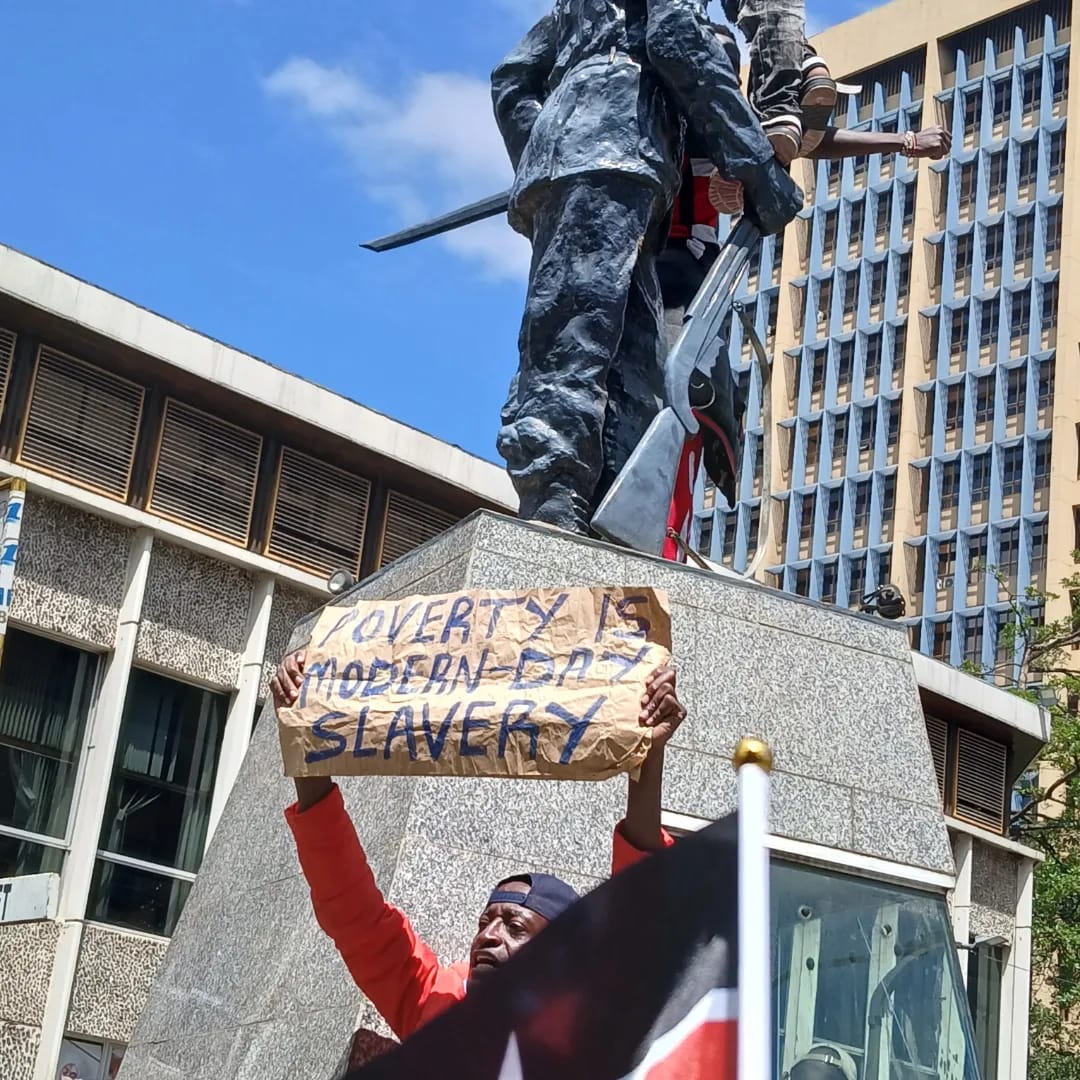
NAIROBI – Kenya is facing a revolution as the Gen Z uprising demands justice and accountability from President Ruto’s two-year government. The conflict stems from public dissatisfaction with economic hardships, corruption, and broken campaign promises. Tensions escalated with the passage of the Finance Bill 2024, which many perceived as benefiting the elite while placing an unfair burden on the average Kenyan. This led to the first wave of protests on June 18, 2024, where thousands of Kenyans took to the streets demanding justice and accountability.
At first, I thought it was just another trending hashtag,” said Amina, a 24-year-old university graduate from Nairobi, interviewed by the author. ‘’But then I saw posters calling for protests, listing everything that was going to be taxed—from bread to diapers–only for it to be stolen. People were joking that next they’d charge us for air! It’s crazy, but it’s also our way of saying: ‘enough is enough.’”
On the digital frontline, Twitter and TikTok are awash with posts documenting alleged looting, extravagant projects, and severe misconduct, including reports of police violence. Amidst this, humorous nationalist tweets offer a satirical take on the situation, while TikTok lives have revealed disturbing truths, such as mass graves. According to Belva Digital, a leading marketing-technology agency in Nairobi, Kenya, the hashtag #RutoMustGo has trended worldwide with 14 million daily views and nearly 340 million video views. This comedic genius resonates deeply with many outside social media, transcending tribal divides to unite Kenyans in our shared desire for a livable country.
Kenyans have also reshared personal information, such as phone numbers and addresses, of political officials in a tongue-in-cheek trend called “kutuma salamu” (send greetings), resulting in the flooding of politicians with phone calls and messages demanding their resignation. This trend has sparked a debate about privacy versus accountability. Some argue that these actions are a necessary evil to hold leaders accountable, providing a non-violent way to pressure officials without physical confrontation. However, critics caution that normalizing such methods could undermine the democratic principles protestors are fighting for, potentially leading to a society where mob justice overrides due process and civil discourse.
The government has attempted to counteract the digital battlefront, including an internet shutdown on June 25 and the shadow banning of relevant hashtags like #RejectFinanceBill2024 and #OccupyStateHouse. Despite these setbacks, the movement has remained resilient, using technology to track abducted protestors, document police brutality, and crowdsource funds for medical bills and funeral expenses.
As the struggle intensifies and more Kenyans stand up to ensure #KenyaNiHome for all of us, the uprising shows no signs of abating. The ongoing “internet war” has added a new level to the demonstrations, where digital platforms have become the main battleground for truth, solidarity, and resistance. The movement’s leaders continue to leverage these tools to coordinate protests, expose government actions, and maintain relentless pressure for change.
